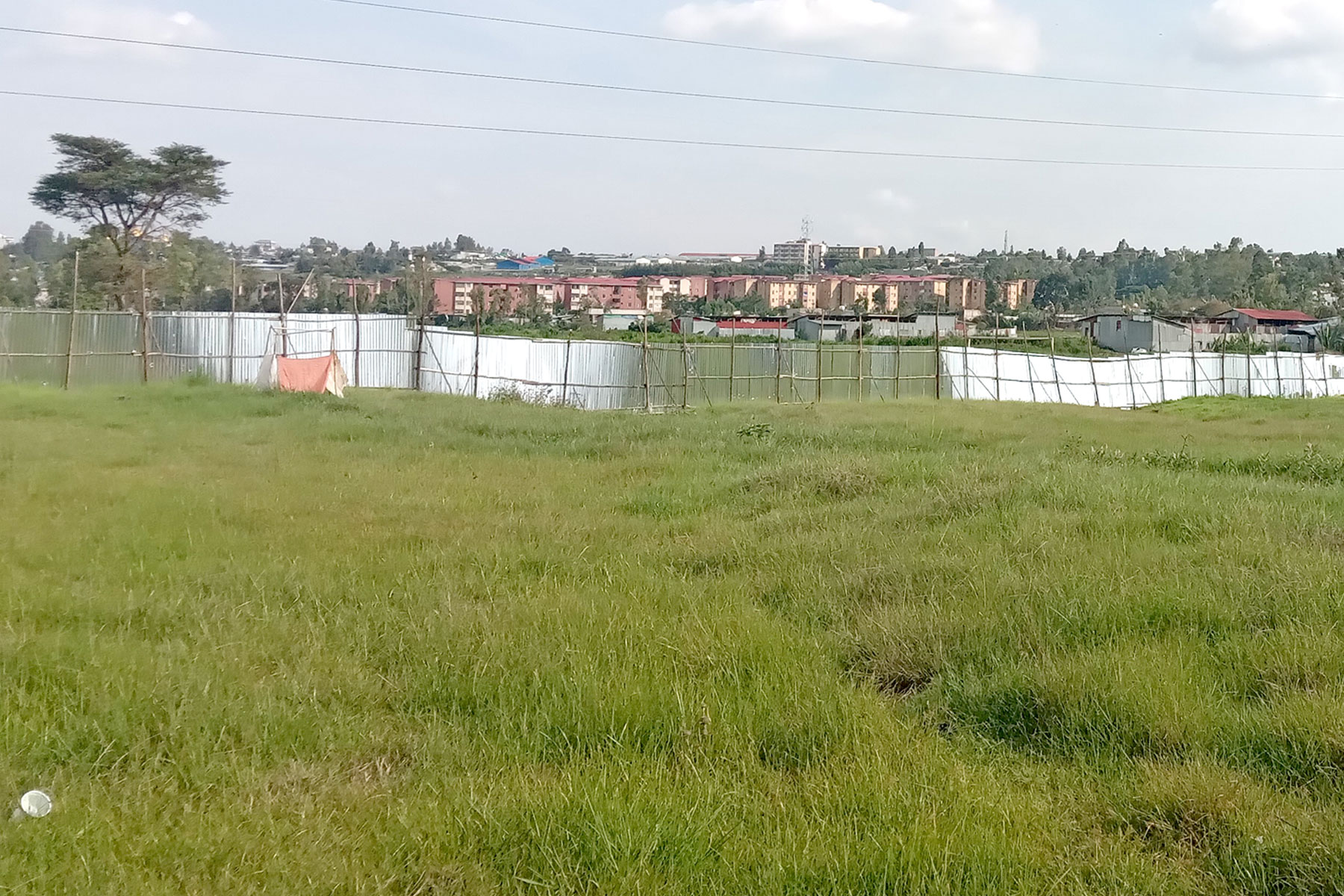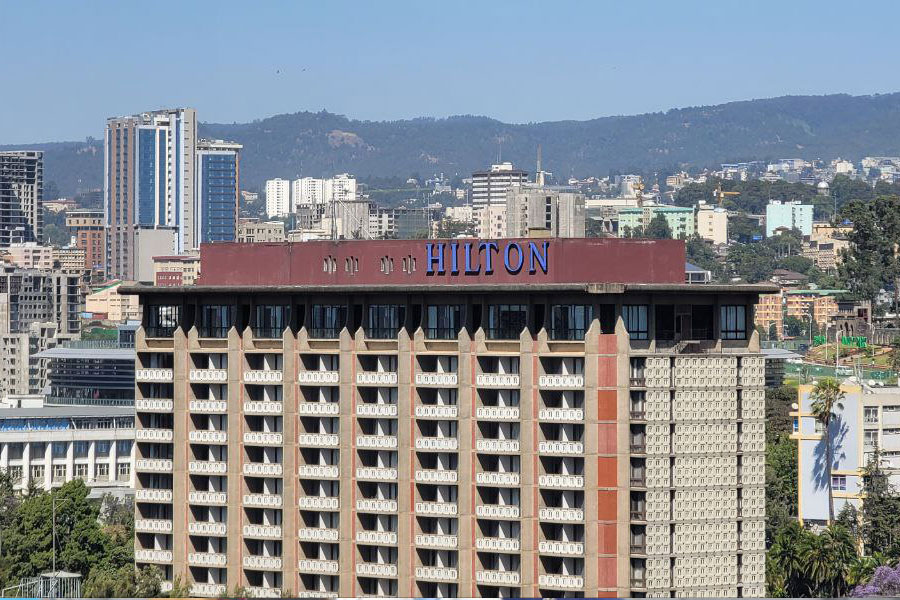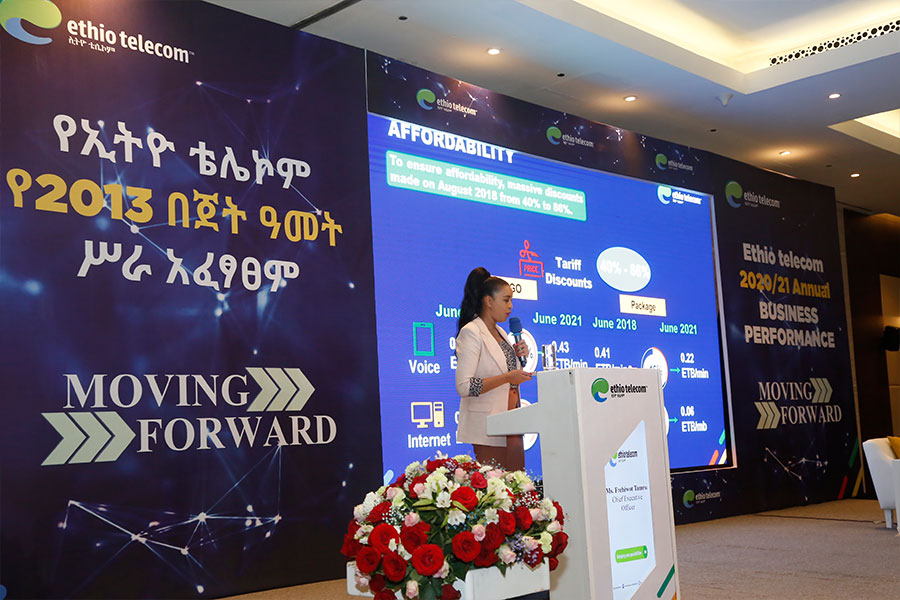
Nov 13 , 2021
By HAWI DADHI
An international conference scheduled to take place in Addis Abeba next year faces uncertainty following the introduction of a nationwide state of emergency two weeks ago.
The International Telecommunication Union, a specialised United Nations agency for information and communication technologies composed of 190 member countries, organizes the World Telecommunications Development Conference every four years since 1985. Ethiopia was selected to host the eighth global conference in June 2019, marking the first time it would take place in Africa.
It was initially scheduled for 2021 but was postponed in light of the COVID-19 pandemic. Close to 2,500 participants, including government officials from various countries, are expected to attend.
A national organising committee chaired by the minister of Innovation & Technology and co-chaired by the Ethiopian Communications Authority (ECA) was set up two years ago. Committee members include the Ministry of Foreign Affairs, Federal Police Commission and the National Intelligence & Security Services.
Organisers have expressed their disquiet after a state of emergency was declared by parliament earlier this month. There has not been any formal communication for a change of venue, Balcha Reba, director-general of the ECA, told Fortune. However, concerns have been raised informally over how the conference can be held in Ethiopia under the prevailing security circumstances.
The Director-General attributes "inaccurate reporting" by the international media for casting doubt on the security situation in Addis Abeba. Authorities remain positive that the conference can be held even if the state of emergency is extended. It would not be the first time a global meeting was held in a country under a state of emergency, Balcha says. In 2016, Turkey hosted 2,000 delegates for the 26th Universal Postal Congress under a state of emergency spanning two years.
A response was given to the officials of the ITU who raised their concerns, Huria Ali, a state minister for Innovation & Technology, disclosed.
"We've continued our work," she said.
A branded logo for the conference has been released, and a website with information and registration features was launched. The organising committee has also agreed with the UNECA to use the conference hall for the event. Over the past year, a series of virtual conferences dubbed “Road to Addis” have been hosted with senior government officials, including President Sahle-work Zewde, in attendance.
The 10-day conference is expected to generate business for the hospitality industry, transport companies and tourist sites.
A fact-finding team from the ITU had conducted an assessment in mid-October, reviewing accommodation facilities, the conference venue and reliable service in technology infrastructure.
“The team verified that we`ve fulfilled the requirements, and it has been reported [to the Union],” said Balcha.
Two days before the conference, the Ethiopian government plans to host a summit - “Generation Connect,” - for the youth from across the world and Ethiopian startups, companies and individuals working in the technology sector. Organisers also hope to present the country's progress in liberalising the telecom sector, featuring a Safaricom-led consortium that acquired a private telecom operator's license earlier this year.
“This would allow us to showcase the telecom sector's development and its future direction,” said Balcha.
The consortium, which paid 850 million dollars to buy an operating licence, is expected to begin offering services in the first quarter of 2022, based on the initial agreement between the government and the company. However, according to sources close to the matter, Safaricom's expatriate staff have left the country with their families, alarmed by the security situation.
Authorities believe this will not deter the company from making the progress it has planned.
The consortium has made deals with Nokia and Huawei for infrastructural development. Negotiations are also underway with the state-owned Ethio telecom to determine tariff rates for national roaming, interconnection and infrastructure sharing, facilitated by the Communications Authority. The two operators are making arrangements to finance future infrastructure (tower) developments jointly.
"We understand the reports that came out last week may alarm them," said Balcha. "They resorted to temporarily moving, but this doesn't mean they've stopped working."
PUBLISHED ON
Nov 13,2021 [ VOL
22 , NO
1124]

Fortune News | Apr 03,2023

Radar | Jul 29,2023

Radar | Sep 22,2024

Viewpoints | Jun 17,2023

Fortune News | Jul 18,2021

Dec 22 , 2024 . By TIZITA SHEWAFERAW
Charged with transforming colossal state-owned enterprises into modern and competitiv...

Aug 18 , 2024 . By AKSAH ITALO
Although predictable Yonas Zerihun's job in the ride-hailing service is not immune to...

Jul 28 , 2024 . By TIZITA SHEWAFERAW
Unhabitual, perhaps too many, Samuel Gebreyohannes, 38, used to occasionally enjoy a couple of beers at breakfast. However, he recently swit...

Jul 13 , 2024 . By AKSAH ITALO
Investors who rely on tractors, trucks, and field vehicles for commuting, transporting commodities, and f...

Jun 28 , 2025
Meseret Damtie, the assertive auditor general, has never been shy about naming names...

Jun 21 , 2025
A well-worn adage says, “Budget is not destiny, but it is direction.” Examining t...

Jun 14 , 2025
Yet again, the Horn of Africa is bracing for trouble. A region already frayed by wars...

Jun 7 , 2025
Few promises shine brighter in Addis Abeba than the pledge of a roof for every family...